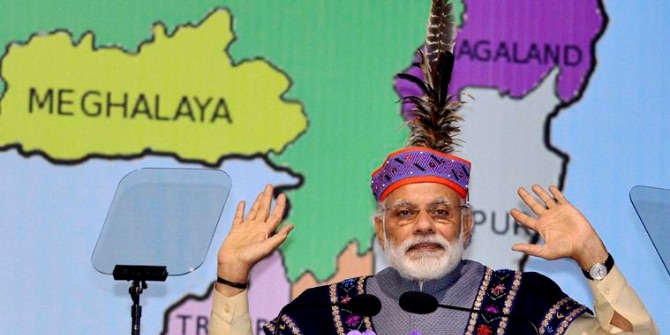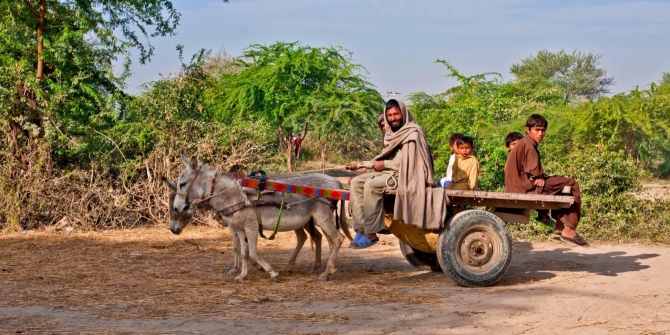In a new book, LSE’s Sumi Madhok proposes a new theoretical framework for agency thinking by examining the ethical, discursive and practical engagements of a group of women development workers in north-west India with developmentalism and individual rights.
Through an ethnography of the normative and political trajectory of developmentalism and rights in northwest India, “Rethinking Agency: Developmentalism, Gender and Rights” proposes a new theoretical framework for conceptualising agency in an oppressive context.
In this work, Madhok focuses both on a specific question, i.e. how to think about agency in oppressive contexts, but also how to think more broadly about the relationship between gender, agency and coercion. She argues that taking up the question of oppression and subordination seriously requires modifications in our conceptual understandings of agency.
Madhok not only proposes certain modifications to our agency thinking – arguing for a move away from free action to evaluating speech practices – but also ‘tests’ this new framework through extensive ethnographic work documenting narratives of human rights and justice of women development workers in rural Rajasthan with a view to track the entry of developmentalist ideas, especially those related to individual rights. Madhok analyses the mode of deployment and operation of these ideas, and the nature of transformations these induce, including new kinds of subjectivities, injuries, risks and forms of subjection. Consequently, the book engages with two interrelated threads of conversation:
- The first sets out the modifications in our conceptual thinking on agency, arguing that this is essential if we are to seriously think about agentival practices in oppressive contexts;
- And the second focuses on concrete encounters with developmentalism and in producing an analysis of what might be called life trajectories of developmentalism.
As such, “Rethinking Agency” raises critical questions: how do we think of agency in oppressive contexts? Further, how do issues of risk, injury, coercion and oppression alter the conceptual mechanics of agency itself? Apart from the conceptual and the empirical, there is also an important ethical dimension to this book, which is one of accountability and the responsibility involved in mobilising very poor and marginalised women in development projects.
Dr Sumi Madhok is Lecturer in Transnational Global Studies at LSE’s Gender Institute.








